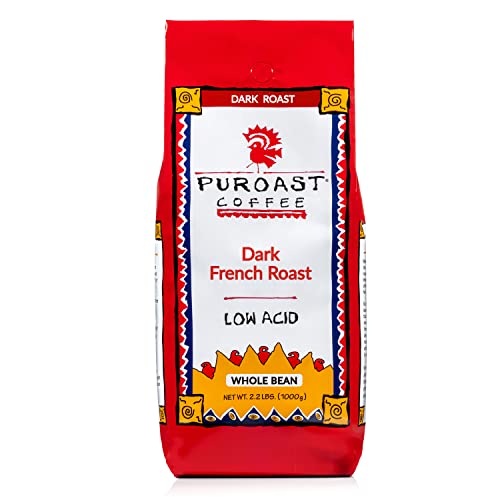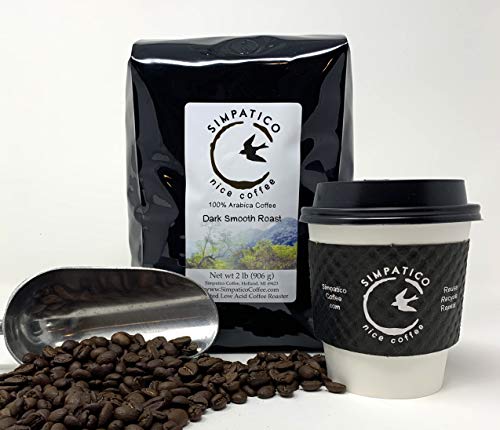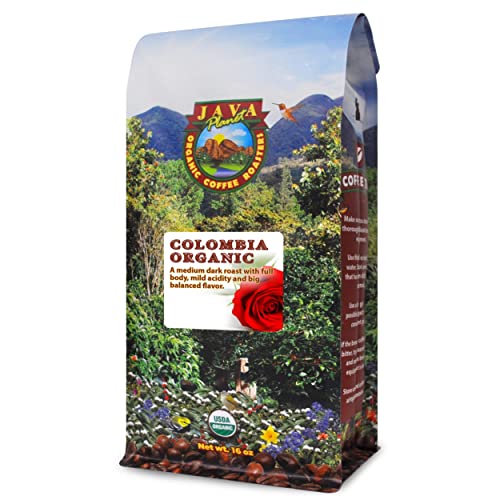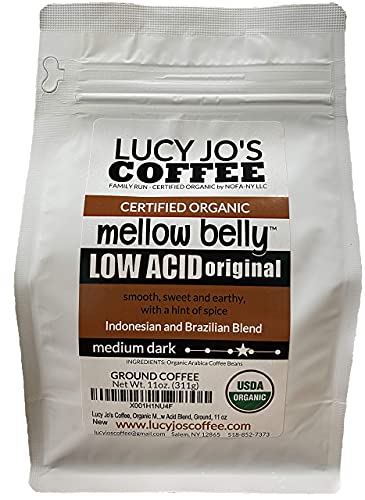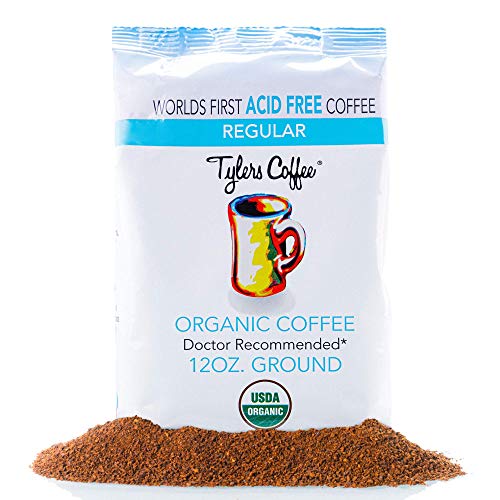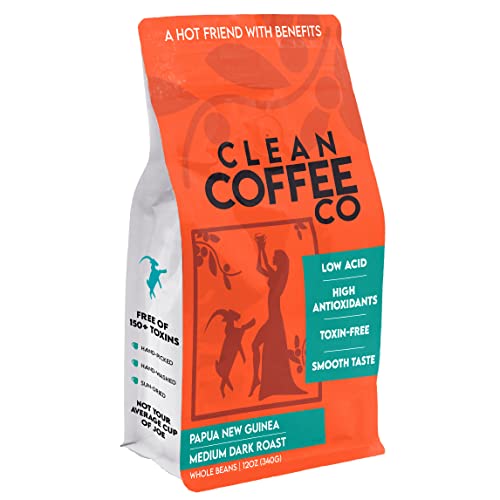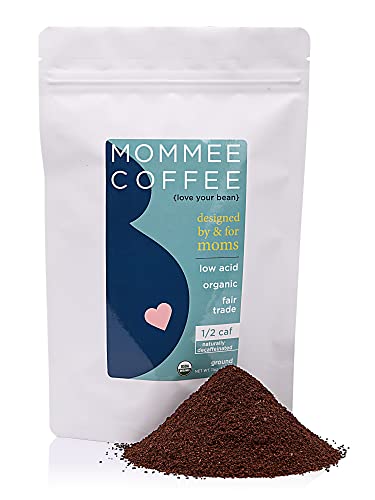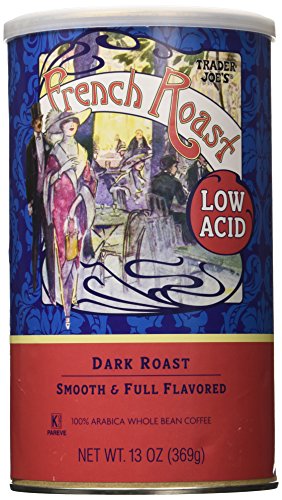Did you know acid gives the contents of your coffee cup those bright, bold flavors you love? Unfortunately, complex flavor profiles aren’t all acid causes — ask anyone with heartburn, Irritable Bowel Syndrome, or GERD, and they’ll tell you acid creates discomfort!
Thankfully, java manufacturers know of the irritation acids can cause coffee lovers and have begun producing low-acid products to counter their effects.
At a Glance: Best Low Acid Coffee
Do low-acid options mean you can enjoy a cup of coffee without suffering the consequences for hours afterward? Does this joe taste good, or is it a pale, flavorless imitation of regular coffee? We made it our mission to answer these and more questions for you. We also tracked down some best low acid coffee beans for you to try.
But before we look at some of the best beans on the low-acid coffee market, let’s have a quick science lesson.
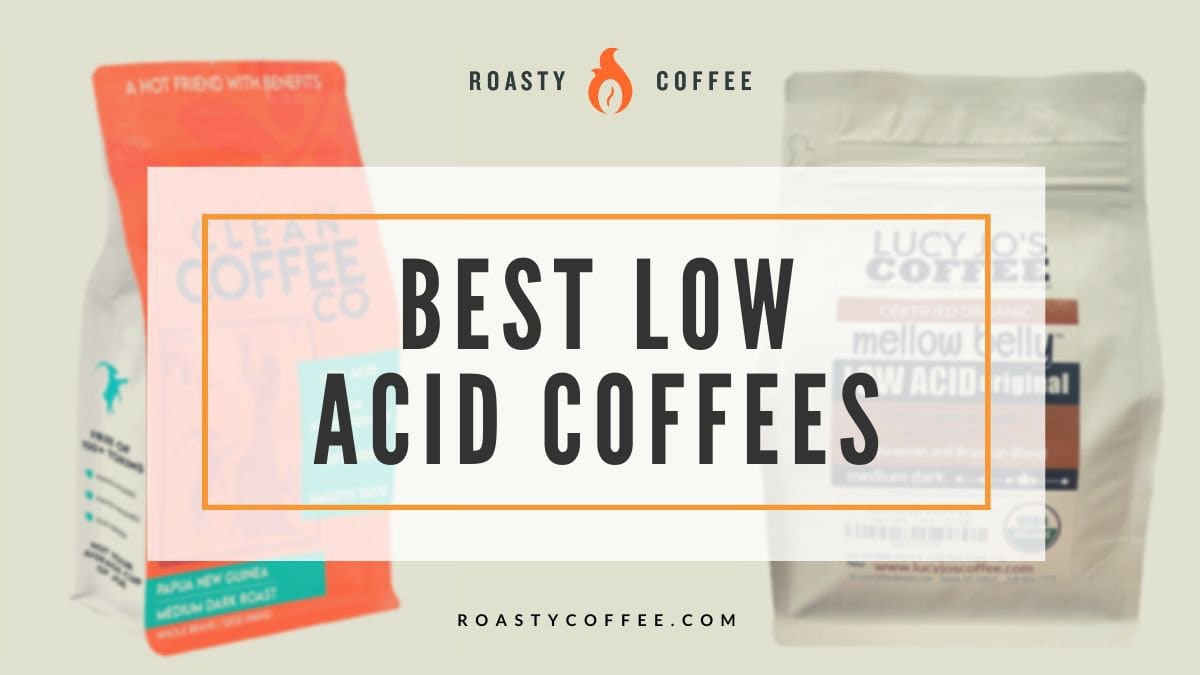
Quick Summary: Best Low Acid Coffee
 | Our Top Choice Lifeboost Coffee Organic Medium Roast |
| Check On Lifeboost → |
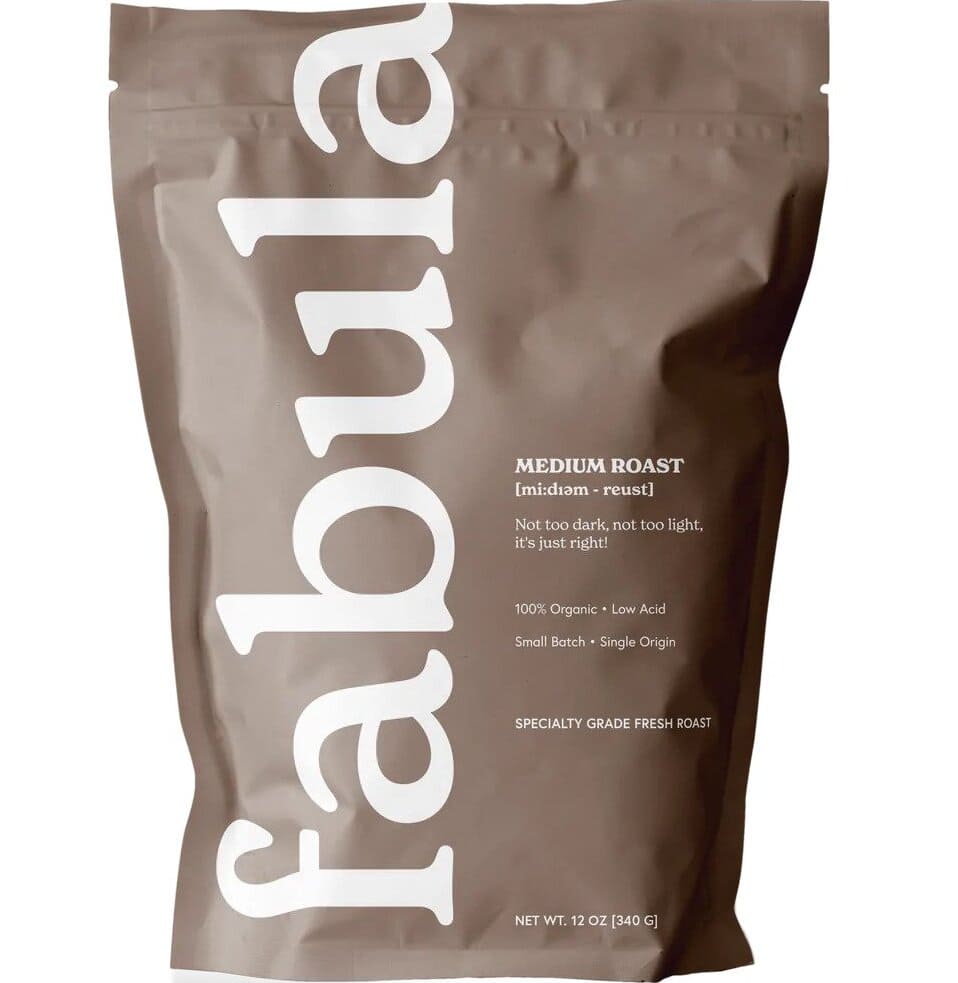 | Fabula Coffee Medium Roast |
| Check Price → |
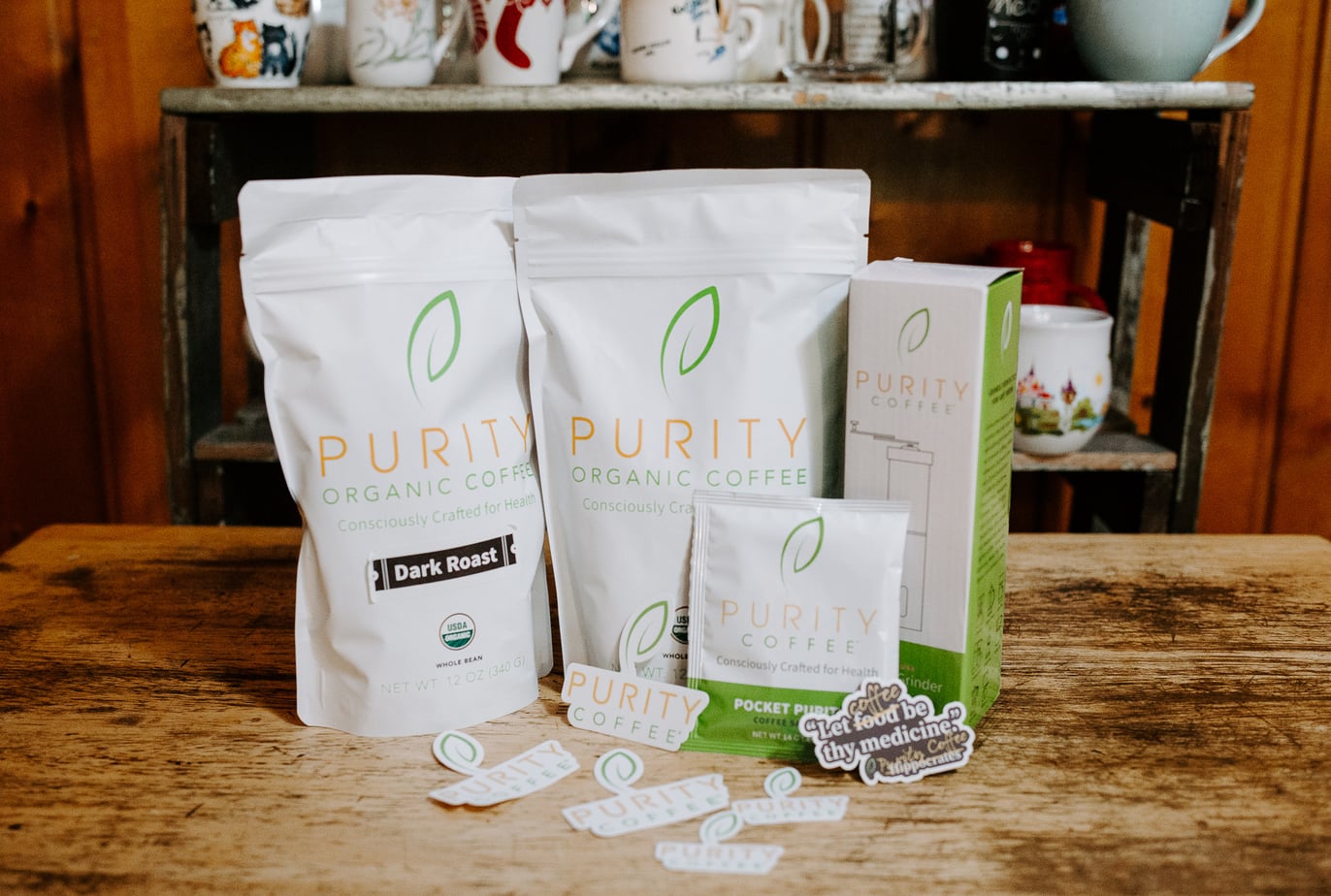 | Purity Coffee - Low Acid Beans |
| Check Price → |
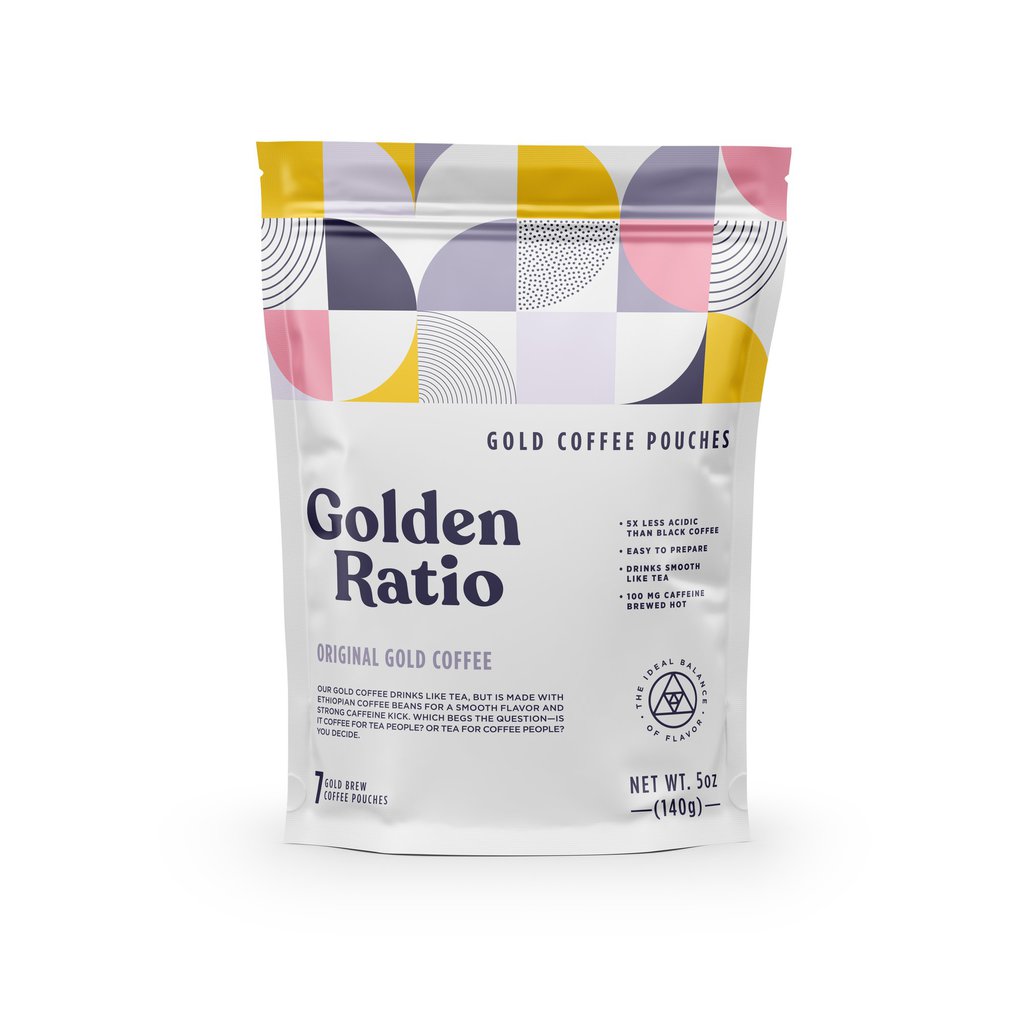 | Golden Ratio Low Acid Coffee |
| GET 50% OFF + FREE SHIPPING → |
 | Puroast Coffee Dark French Roast |
| Check on Amazon → |
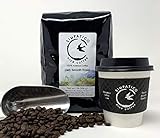 | Simpatico Low-Acid Dark Roast Coffee |
| Check on Amazon → |
 | Java Planet Colombian Organic Medium Dark Roast Coffee |
| Check on Amazon → |
 | Lucy Jo's Coffee Organic Mellow Belly Low Acid Blend |
| Check on Amazon → |
 | Tyler's Coffee No Acid Organic Ground Coffee |
| Check on Amazon → |
 | Clean Coffee Co. Whole Bean Coffee |
| Check on Amazon → |
 | Mommee Coffee Low Acid Half-Caf |
| Check on Amazon → |
Coffee Acid vs. Coffee Acidity
Did you know there are around 30 different acids in coffee? No? There are, including the same ones found in vinegar and citrus fruits!
We measure acid content with the pH scale that ranges from a highly acidic zero to a completely basic 14. For context, pure water has a pH of seven, rendering it neutral. On the other hand, the acid in your stomach measures a big fat zero.
Traditional coffees come in at around five on the pH scale, making them slightly less acidic than fruit juice.
The pH scale doesn’t measure coffee’s acidity levels — confusing, we know. When a coffee connoisseur references coffee acidity, they’re talking about flavor notes, not acid content, as you might think.
Coffee acidity generally indicates the quality of the bean. For example, high-altitude beans might be labeled acidic because of their robust flavors, while darker roast coffees’ flavor profiles make them less acidic.
But don’t be fooled: coffee with low acidity isn’t automatically non-acidic. See the aforementioned dark roast beans as an example. Their flavors give them less acidity than light roasts, but they still contain coffee acids.
The main takeaway is that you don’t have to avoid a bag of coffee grounds or whole beans merely because the word acidity is on the label.
What Are the Benefits of Low-Acid Coffee?
For starters, low-acid coffee is less likely to cause an upset stomach. Our stomachs already have hydrochloric acid and pepsin to aid digestion and kill potentially harmful bacteria. But some food and drink, like regular coffee, cause the body to create even more stomach acid.
An acid surplus can result in acid reflux, which causes acid to rise from the stomach into the esophagus and throat — sounds annoying, no? It is, and anyone prone to that irritating phenomenon needs a bag of low-acid coffee beans on the shelf!
Low-acid coffee is also better for your tooth enamel. Coffee alone doesn’t appear to cause tooth decay, but highly acidic coffee can cause acid reflux, which is notorious for severely damaging teeth.
Fitness enthusiasts may benefit from a low-acid brew. Why? Because the lower esophagus weakens during exercise, increasing the possibility of acid reflux. And if you’re a runner, the results can be even more uncomfortable; as you run, the contents of your stomach — including acid! — stir, adding to the potential for issues. However, sipping a less acidic coffee before your morning jog can decrease the chances of acid reflux occurring as you work out.
Roasty Rankings: Our Picks for the Best Low-Acid Coffee
Since the acid in coffee can cause acid reflux, heartburn, and other digestive issues, anyone afflicted by any of those issues must try one of these delicious low-acid coffees.
However, these beans aren’t just for coffee fans who suffer from various acid-related health issues. Some people have taken to routinely drinking low-acid coffee because they find these beans’ flavors are brighter and more refined. Notes of fruit, nuts, and chocolate are often much more readily detectable in low-acid coffees.
So, without further ado, here are our favorite low-acid coffees for you to try!
Lifeboost Coffee Organic Medium Roast

Lifeboost Coffee Organic Medium Roast
Our Delicious, Immune-Boosting, Low-Acid Healthy Coffee In Single Serve Coffee Pods. Non-GMO, single-origin, USDA-certified organic coffee. And, pH test proven to be up to 27.7% less acidic than common store-bought coffees.
Lifeboost Coffee’s medium-roasted beans hold the number one spot on our list of low-acid coffees. Nothing is added or removed from this joe, so its low acid level is purely a result of the location and means by which it’s grown.
The organic single-origin Nicaraguan coffee is also non-GMO, Fair Trade, kosher, and shade-grown at elevations over 5,700 feet. That last descriptor is somewhat unusual, as most low-acid coffee grows at lower elevations.
Shade-grown coffee has desirable and complex flavors because the coffee cherries have time to mature, letting the fruit’s natural sugars burst through and influence the taste of your final brew. Less than two percent of the world’s coffee is shade-grown, and Lifeboost is at the top of that percentage.
Producers handpick only the best beans from coffee plants once they’re fully mature before sun-drying them at the perfect humidity level to ensure there is no mold. Finally, the beans roast slowly, creating a smooth, ultra-low-acid brew with chocolate and caramel notes and no bitter aftertaste.
We had to make sure Lifeboost Coffee is legit, so we tested a cup of the company’s brew with pH strips, and it came out at six. Remember, seven is neutral on the pH scale, so this coffee wasn’t too far from neutrality.
Fabula Coffee Medium Roast
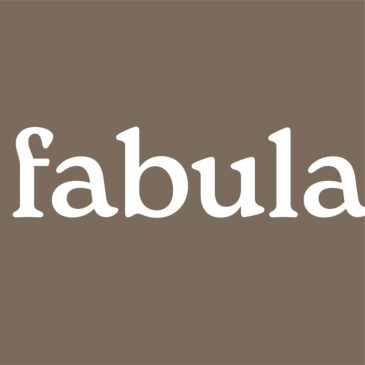
Fabula Coffee
This Low-Acid, Organic Coffee Will Bring Back Your Morning Routine Without The Heartburn and Stomach Pain…
Next on our list is Fabula Coffee, which is a company that strives to make 100% organic, healthy, and tasty coffee that’s accessible to everyone. Each bag is also labeled as vegan, non-GMO, low-acid, and single-origin.
Fabula, which has partnered with small organic coffee farms that shade-grow the beans in high elevations, also tests their coffee at independent laboratories for pesticides and the presence of molds.
Moreover, they also have a sustainability project which allows them to plant trees for every bag of coffee purchased by working with the non-profit organization One Tree Planted.
The medium roast, which is Fabula’s most popular bag of beans, is a tasty and perfectly balanced brew with flavor notes of nuts, brown sugar, chocolate, and mild fruits. With this low-acid choice, you get a healthy, tasty, and freshly roasted cup of coffee that’s good for you and the planet.
Purity Organic Coffee
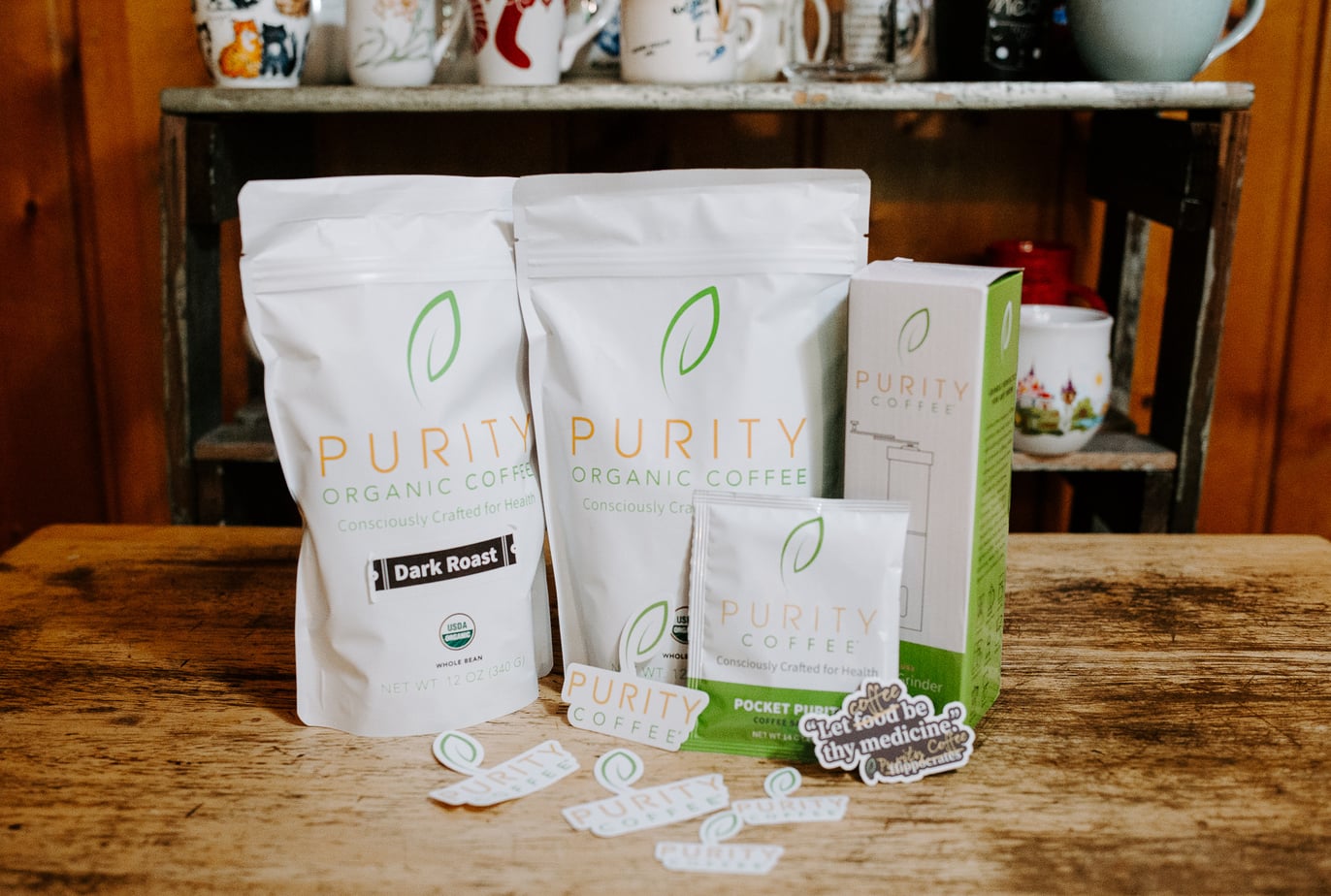
Purity Coffee - Low Acid Beans
Purity Coffee’s roasts and signature blends are freshly roasted, specialty grade organic coffee. Purity focuses on cultivating the healthiest quality coffee as possible, and all of the roasts are packed with nutrients and antioxidants.
Another organic and yummy choice, Purity Coffee uses scientific, coffee industry, and medical research to craft their high-quality coffee. All of their products, whether it be the medium roast, dark roast, decaf, coffee pods, subscription service, and more, are packed with nutrients and antioxidants.
Purity Coffee also works to protect the environments and the coffee farms from which they source their scrumptious beans. They preserve coffee, soil, and sustainable materials, so they are conscious of their environmental impact.
This is another choice that’s not only great for you because of the healthy benefits, organic beans, and low-acid guarantee, but also great for the planet.
Golden Ratio Low Acid Coffee
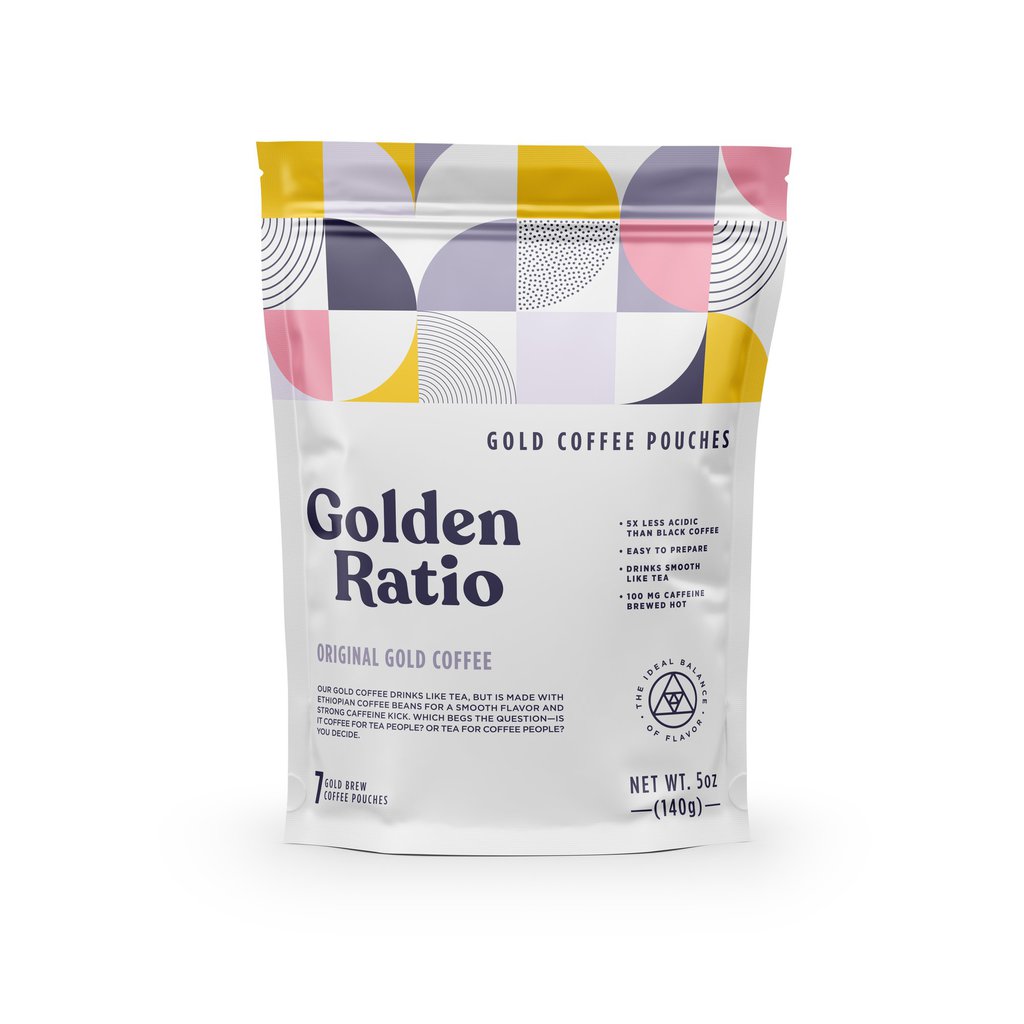
Golden Ratio Coffee
Low acidity, no coffee breath, easy preparation , and the same great caffeine make gold coffee a great choice for your afternoon boost, or in the morning when you’re in a rush or just looking for a change.
Some think Golden Ratio is the gold standard of low-acid, stomach-friendly coffee. Most coffee beans roast past the first crack, but Golden Ratio’s Ethiopian and Brazilian beans don’t even make it to that point, resulting in a light roast coffee that’s easy on the digestive system.
Despite roasting at such a light temperature, Golden Ratio’s sustainably grown beans have a strong flavor profile, albeit one that’s different from the typical coffee taste you already know and love. This joe tastes more like a nutty tea than a cup of coffee, but give it a chance anyway; it might be just the type of coffee you were looking for.
Try it in three flavors: Original, Spiced Chai, or Vanilla Coconut!
Puroast Coffee Dark French Roast
Low-acid coffee brand Puroast slowly roasts its Venezuelan-style beans in a wood fire, resulting in a brew with 70 percent less acidity than basic coffees produced by other leading companies.
This superb coffee also boasts lots of antioxidants — seven times more than green tea and five times more than other coffees. Plus, Puroast uses only 100 percent premium coffee beans to create this smooth, fragrant dark joe. There are no calories, gluten, or additives, and it’s kosher-friendly.
The particular batch of Puroast beans we recommend is a super-dark and smoky French roast. However, the brand has a wide range of products spanning different flavors, origins, and roast levels. So, even if you don’t fancy French roasts, the chances of you finding another Puroast coffee to try are high.
Simpatico Low-Acid Dark Roast Coffee
Kicking the day off with a cup of Mexican coffee is satisfying, and the experience is even better when you know the brew won’t flare up GERD or heartburn. That’s where Simpatico’s low-acid dark roast comes into play.
Farmers shade-grow these beans in Oaxaca, Mexico, and because the growing process uses no harmful chemical-filled fertilizers or pesticides, they are certified organic. Once harvested, these 100 percent arabica beans make their way to Simpatico’s facility in Michigan to be small-batch roasted, bagged, and shipped to your doorstep for brewing.
Load Simpatico coffee grounds into your automatic drip machine and, in just a few minutes, you’ll have a pot full of smooth coffee with fruity flavors and a pleasantly creamy body.
Java Planet Colombian Organic Medium Dark Roast Coffee
The family-owned company, Java Planet, strives to produce beans that aren’t just good but good for you, too. Not only are the beans low in discomfort-causing acids, but they’re also GMO-free and USDA-certified organic.
Mother Earth gets in on Java Planet’s goodness, too, as this coffee is Rainforest Alliance Certified, meaning wildlife habitats and the environment face no harm in the production process.
The single-origin joe grows in Colombia before being small-batch roasted for optimum freshness and flavor retention. And speaking of flavor, you can expect a cup of this stuff to have a balanced taste, fruity tones, full body, and very mild acidity.
Lucy Jo’s Coffee Organic Mellow Belly Low Acid Blend
Lucy Jo’s Coffee Roastery, based in New York and family-run, offers a solid choice for those who don’t react well to highly acidic coffee: Mellow Belly. This low-acid blend is easy on the tummy and the taste buds.
Organic arabica coffee beans grown in Indonesia and Brazil create this medium-dark roast. Use a drip brewing system, like an automatic dripper or pour-over, to conjure up a cup of this stuff so you can experience the brew’s earthy goodness, sweet and spicy tones, and smooth finish.
Tyler’s Coffee No Acid Organic Ground Coffee
If we could hand out a Son of the Year award, we would have no choice but to give it to Tyler Ornstein. He founded Tyler’s Coffee in 2004 after learning his father had to stop drinking coffee because of its high acidity.
An award-worthy action, no? Many consider Ornstein’s beans, which created a pain-free java experience for his father and the countless others who are easily irritated by beverages with high acid contents, the world’s first acid-free coffee.
These all-organic, 100 percent arabica coffee beans come from Chiapas, Mexico, and have a neutral pH. The brand’s secret roasting process is natural, delivering a flavorful and unique coffee experience. Plus, the stuff is doctor-recommended, so it’s a safe choice for those who feared they’d never be able to enjoy coffee again.
Clean Coffee Co. Whole Bean Coffee
Clean Coffee Co. was born of two childhood friends’ determination to create a pure, great-tasting brew. This company takes pride in its production process, bean quality, and all-natural goodness, and its dedication to producing a truly clean cup of joe is apparent in the final product.
You won’t find harsh chemicals, toxins, or pesticides near these single-origin Papua New Guinea Highlands beans. However, you will find a healthy dose of CGA (a.k.a., chlorogenic acid), an antioxidant known for reducing the risk of heart disease, several cancers, and Parkinson’s disease.
The medium-dark roast is also naturally low-acid with a pH of 5.31 (the same as rainwater). The resulting brew is full of smooth flavor and easy on the digestive system, too.
Mommee Coffee Low Acid Half-Caf
Two friends who met at Stanford created Mommee Coffee to appeal to pregnant people and those in the early stages of parenthood. Because Mommee uses organic beans and promotes a chemical-free decaffeination process, mommies everywhere can get their coffee fixes without worrying about putting anything toxic in their bodies or suffering the consequences of high acid levels.
One of this brand’s main selling points (besides being a low-acid coffee option) is that its products have variable amounts of caffeine, allowing java drinkers to adjust their intake of the stuff based on their needs.
We’re sure the butterscotch and toffee-filled flavor and aroma marked by notes of caramel don’t hurt sales either. If you’re keen on controlling what goes into your body, Mommee Coffee is the way to go.
Two Types of Low-Acid Coffee
There are two primary types of low-acid coffee: treated and inadvertent. But what’s the difference?
Treated Low-Acid Coffee
Special processing techniques that deliberately render low-acid results create the treated version of this java. For example, Brazilian coffee roasted with a very slow or interrupted roasting process is less acidic than beans roasted differently. Steaming the beans to shed their waxy outer coatings before roasting has a similar effect.
Inadvertent Low-Acid Coffee
Inadvertent low-acid coffee refers to beans that are naturally low in acid. As a rule, green coffee beans that grow at low elevations tend to be low in acid. The soil in coffee-producing nations like Brazil, Sumatra, Peru, Guatemala, and Mexico naturally yields beans with a low acid content, too.
You can also reduce coffee’s acid levels by mixing the grounds with a stomach-soothing powder. But unfortunately, those alkalizing products tend to interfere with how your cup of coffee tastes.
How to Make Coffee Less Acidic
If you’re looking for ways to make your coffee less acidic, you’re not alone. There are actually many steps you can take to ensure you’re getting a healthier and less acidic cup of joe.
Choose Your Bean Carefully
Coffee’s roast level can heavily influence how acidic it is, and light roasts are often more acidic than the standard dark roast coffee.
If you’re going to put in the effort of researching roast level, you may as well dig deeper into the coffee beans’ variety and how they are processed. Arabica beans are considerably less acidic than robusta beans, and drying them whole, especially while still in the pulp, minimizes acidity even more.
Check Your Water
Low-acid coffee lovers should also be careful about the water they pour into their coffee maker, as it impacts your final brew’s amounts of acid.
Tap water quality can affect your joe’s pH level, so using a water filtration system is a great way to ensure water is not the culprit for causing overly acidic coffee.
Consider Decaf
We know cutting down on caffeine might be a big ask for any coffee drinker who relies on the stuff to get them through the day, but facts are facts, and the fact is that decaf causes your stomach to produce less acid than fully caffeinated joe.
If you’re looking for something that will be mild on your stomach, choosing coffee with an ultra-low caffeine content might be worth trying.
Cool Down With a Cold Brew
A study published in Nature revealed that a glass of cold brew coffee is less acidic than a mug of piping hot joe. It states, “Cold brew coffee extracts were found to have lower concentrations of acidic compounds and may be less chemically diverse than hot brew coffee extracts prepared from the same beans.”
Is this difference significant enough to change your drink of choice? Yes. Cold brew is around 70 percent less acidic than hot brew.
The brewing process and temperature you use to create your morning beverage heavily influence the finished product’s acid content; the most effective method for making low-acid coffee seems to be a slow-steeped cold brew.
Keep it Coarse
If you prefer a hot cup of coffee, don’t fret; you don’t have to join us in the cool kids club if you don’t want to. Pay attention to your grind size instead!
Avoid finely ground coffee beans; the coarser grind you use, the less acid the beans secrete into the water.
Add-Ins
Another way to make your coffee less acidic is by adding a splash of milk or cream to your cup, as the calcium in dairy has powerful antacid qualities. Black coffee drinkers can still get in on this perk of calcium by stirring a spoon or two of flavorless calcium powder into their joe.
Frequently Asked Questions
Does Acid-Free Coffee Exist?
To clarify, being acid-free means having a neutral pH level*, and to our knowledge, only one brand produces beans that meet that criteria: Tyler’s Coffee.
*Remember, the pH level ranges from zero to 14, with seven being neutral. The lower the number, the more acidic.
Is Decaf Coffee Acidic?
Decaf coffee is acidic, but studies show it’s less acidic than coffee with higher caffeine levels for a few reasons: first, phenolic acid levels decrease when producers extract caffeine from the coffee beans, and second, caffeine causes your stomach to produce more acid.
Besides, caffeine can potentially trigger heartburn and gastroesophageal reflux disease (GERD). Since regular joe is a significant source of the stimulant, decaf is an excellent choice for anyone looking to limit acid-related issues caused by coffee.
What is the Best Coffee for Acid Reflux?
Any batch of low-acid beans will treat a victim of acid reflux better than regular coffee, but there are still a couple of rules of thumb to follow when selecting this kind of java.
First, the darker the roast, the better. Light roasts are notoriously bright and acidic, and even though they taste great, they aren’t any good at keeping acid reflux at bay. Second, try decaf (bonus points if it’s low-acid decaf), as extracting caffeine from the beans also significantly lowers acid levels.
That said, dark roast low-acid decaf coffee beans are probably your best bet for relief.
Does Starbucks Have Low-Acid Coffee?
Starbucks has dozens of bean blends on the market, and several are low-acid coffees, including:
- Breakfast Blend: Its tangy citrus flavor and brown sugar notes make this mild-medium roast coffee a pleasant morning pick-me-up for anyone seeking a less intense low-acid brew.
- Sumatra Blend: This bold single-origin is for dark roast lovers. It has almost no acidity, but there is a nice and earthy flavor strong enough to stand alone.
- French Roast: The darkest roast Starbucks has to offer, the smoky blend has been a customer favorite since its introduction in 1971.
Do Grocery Stores Have Low-Acid Coffee?
You can click any of the links on the products listed above to purchase a bag of low-acid beans easily, but if you want to buy your coffee in person, head to your grocery store; you’d be surprised what low-acid options are on the shelves.
For example, Trader Joe’s sells a low-acid French roast for people who want something with low-acid and high intensity. Puroast’s products are on the shelves at some Publix locations.
Product availability varies depending on your location, so do some research before heading to the store.
Is Dark Roast Coffee Less Acidic?
A long roasting process and hot temperatures burn away many of the coffee’s organic acids, resulting in joe with low acid content. So, yes, dark-roasted coffee is less acidic than its lighter counterparts.
Is Tea Less Acidic Than Coffee?
Healthline says a mug of black or green tea will probably be less acidic than the cup of coffee you look forward to every morning. But like coffee, tea’s acid content varies based on what kind it is and its origin. So, the answer to this question ultimately depends on those factors.
Add Low-Acid Coffee Beans to Your Brewing Routine
Even if you’ve got the most sensitive stomach in the world, you can still enjoy good joe without sacrificing quality or flavor. Any of the above products we reviewed is an excellent choice for a low-acid coffee seeker, and using them with your favorite cold brewing method or French press is a great way to maximize the benefits of your beans.
Choose whole beans and grind your joe yourself, buy pre-ground coffee, or use low-acid K-Cup pods if you’re a Keurig fanatic — there’s something out there for everyone, so you can look forward to enjoying a flavorful brew without an antacid chaser!
Happy Caffeinating!

